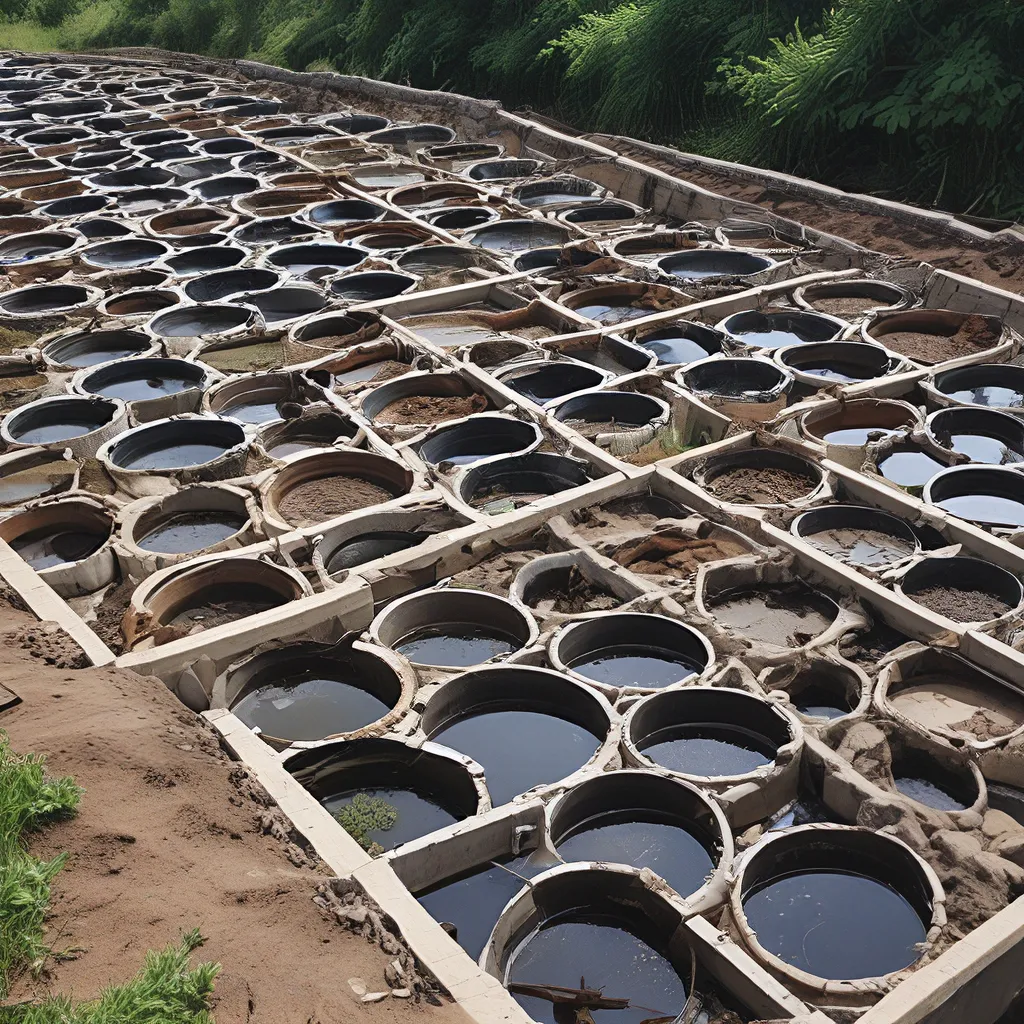
As an avid believer in the power of the sharing economy, I’ve always been fascinated by how innovative business models can disrupt traditional industries. And when it comes to the world of wastewater treatment, I see a fascinating intersection of emerging technologies and collaborative service approaches that could transform the way we manage our most precious resource – water.
Rethinking the Wastewater Treatment Paradigm
Let’s face it, the traditional wastewater treatment model has been around for decades, and it’s starting to show its age. Sure, the tried-and-true methods of sedimentation, biological treatment, and disinfection have served us well, but the world is changing, and we need to adapt. Recent studies have highlighted the growing challenges of aging infrastructure, rising energy costs, and the need for more sustainable resource recovery.
But what if we could tap into the same collaborative spirit that’s revolutionized industries like transportation and accommodation? Enter the sharing economy – a model that leverages technology to connect people, resources, and services in new and innovative ways. In the context of wastewater treatment, this could mean rethinking the traditional centralized approach and exploring decentralized, community-based solutions.
Decentralized Wastewater Treatment: A Community-Driven Approach
Imagine a world where every neighborhood, or even individual household, had its own small-scale wastewater treatment system. Emerging research suggests that this decentralized model could offer a range of benefits, from reduced energy consumption and greenhouse gas emissions to increased flexibility and resilience in the face of changing environmental conditions.
But the real magic happens when we start to leverage the power of the sharing economy. Instead of each household or community operating their own standalone system, what if they could join a network of interconnected treatment facilities, sharing resources, expertise, and even excess capacity? This could create a collaborative ecosystem where everyone contributes to the greater good, and everyone benefits from the collective intelligence and economies of scale.
Unlocking the Potential of Wastewater Resource Recovery
One of the most exciting aspects of this reimagined wastewater treatment paradigm is the potential for resource recovery. Instead of simply treating and disposing of wastewater, we can extract valuable resources like water, nutrients, and even energy, and redistribute them to where they’re needed most.
Imagine a scenario where a local community could sell their treated water to nearby farms, or even use it to irrigate their own urban gardens. Or what if a municipal wastewater treatment plant could generate renewable energy from the biogas produced during the treatment process, and then share that energy with the surrounding neighborhoods?
Embracing the Future of Wastewater Management
As I delve deeper into this topic, I can’t help but feel a sense of excitement and optimism. The rapid advancements in technology, the growing awareness of sustainability, and the power of the sharing economy all point to a future where wastewater treatment is no longer just a necessary chore, but a collaborative, resource-rich endeavor that brings communities together and promotes the circular economy.
Of course, there are still challenges to overcome, from regulatory hurdles to the adoption of new technologies. But I believe that by embracing a spirit of innovation and cooperation, we can unlock the full potential of wastewater treatment and create a more sustainable, resilient, and equitable future for all.
So, what do you say? Are you ready to join me on this exciting journey towards a new era of wastewater management? If so, I encourage you to explore the services offered by Alpha Wastewater – a company that is at the forefront of this transformative movement. Together, we can make a real difference in how we manage our most precious resource and build a better world for generations to come.